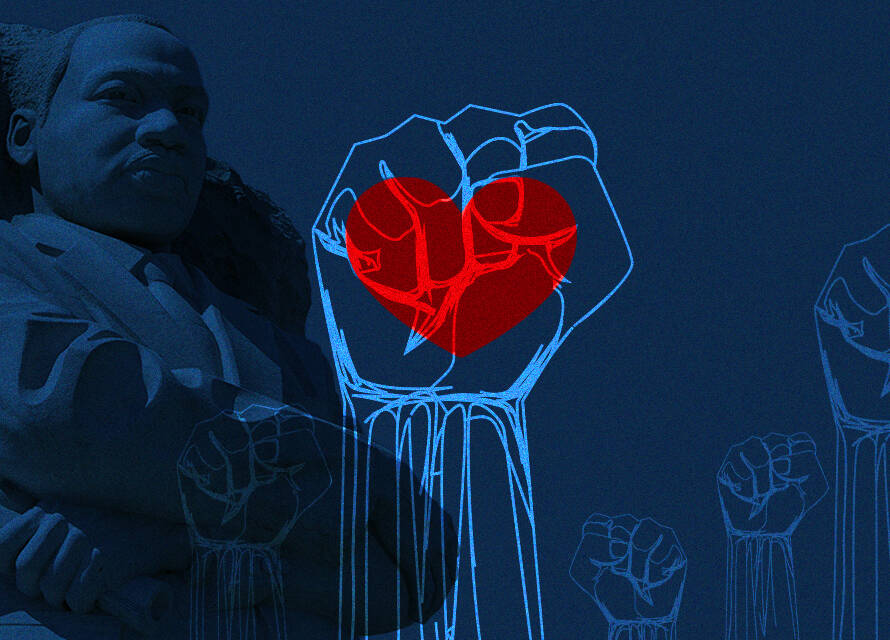Last year I listened to Gina Elliot’s presentation on Racial Trauma and healing; it was informative and heart-moving. In so many ways, as she describes epigenetic trauma, I could feel her words’ impact on my life and the generations before and after me. (Epigenetics is the study of how your behaviors and environment can cause changes that affect the way your genes work.) To watch, here is the link.
Later, Sarah Dornbos joined Gina to continue the conversation on racial trauma, its forms, microaggressions, and its impact on people of color. The workshop was excellent, and I highly recommend participating. For possible upcoming opportunities visit https://madeforfellowship.com/reconciliation/
Now that I have piqued your interest, you might think I am about to share more about what I learned from the presentation and workshop. Not just yet. For now, I would like to discuss a benediction Gina and Sarah used from the same author Jan Richardson. I have never met Jan Richardson, nor have I heard of her. However, after hearing the following liturgy, I had to find out more. Here is the liturgy that pressed me into my seat.
The Hardest Blessing —Jan Richardson

If we cannot lay aside the wound, then let us say it will not always bind us. Let us say the damage will not eternally determine our path. Let us say the line of our life will not always travel along the places we are torn.
Let us say that healing can take some practice, can take some patience, can take a long and struggling time. Let us say that to offer the hardest blessing, we will need the deepest grace; that to forgive the sharpest pain, we will need the fiercest love; that to release the ancient ache, we will need new strength for every day.
Let us say the wound will not be our final home—that through it runs a road, a way we would not have chosen but on which we will finally see forgiveness, so long practiced, coming toward us, shining with the joy so well deserved.

2016 Update: “The Hardest Blessing” appears in Jan’s new book, The Cure for Sorrow: A Book of Blessings for the Seasons.
Jan writes about the formation of this liturgy by looking at Matthew 18:21-35 and what we do with distorted beliefs about forgiveness in her blog. https://paintedprayerbook.com/2014/09/09/the-hardest-blessing/
She states, “Forgiveness might well be the hardest blessing we will ever offer—or receive. As with any difficult practice, it’s important to ask not only for the strength we will need for it but also the grace: the grace that will, as we practice again and again, begin to shimmer through our wounds, drawing us toward the healing and freedom we could hardly have imagined at the outset.”
And then, she adds these reflective questions.
Is there some forgiveness you are being asked to practice?
Are there any ideas about forgiveness that you might need to release—or take on—in order to enter this practice?
I agree. Forgiveness is a hard blessing to offer and receive. And the questions or so relevant when you are in that space.

I don’t think I could add any more insight to what Jan has already profoundly shared. Yet, the words were not a ‘one-off’ benediction. To be heard, enjoyed, convicted, and then walked away from. For me, the liturgy required that I sit with each line, paragraph, and then as a whole as I wrestle with the graces of forgiveness—the forgiving of self, others, past and present. I needed to read the liturgy in quiet and then in loudness.
I needed the silence for the words to seep into places without distraction, and then I needed to do as she said….” Let us say!!!” To speak the words out loud aligns my mind with my heart and my tongue. It calls out what might not be yet but what should be. It is to call out loud the pain for the world to hear and the heavens and the hordes fighting against it.
It is a hard blessing and an equally hard practice but worth it to understand the pain to lay aside the wound and, at the same time, hope it will not always bind us.
And to recognize the fruit of forgiveness is a joy deserved and peace returned.
Remember, You Are Loved!
To learn more about Jan Richardson and be inspired by her work visit janrichardson.com.


